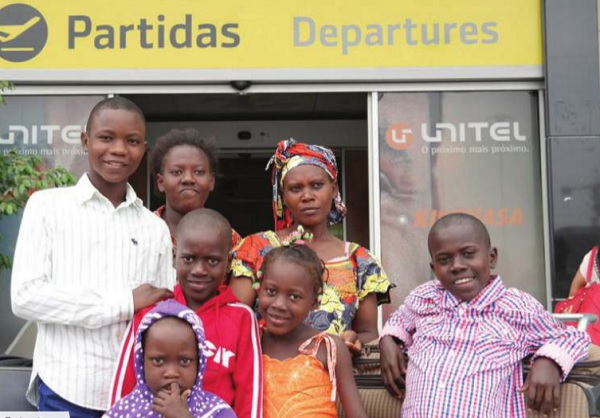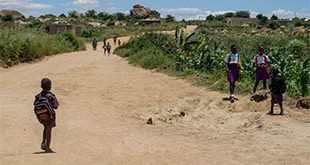
UNHCR, African host countries agree on final steps to resolve Rwandan refugee situation
UNHCR, the UN Refugee Agency, and delegations from African countries as well as the African Union, have agreed on the final steps to end the protracted Rwandan refugee situation after seven years of negotiations. This was at a ministerial meeting, hosted on Sept.30 by UNHCR in Geneva.
The agreement marks the last phase of a comprehensive solutions strategy for Rwandan refugees who fled their country between 1959 and 1998 to escape inter-ethnic violence and armed conflict.
A press statement issued by UNHCR regarding the agreement said the Sept.30 meeting constituted a crucial step in providing solutions to the many Rwandans who sought refuge between 1959 and 1998, and in bringing one of Africa’s most protracted refugee situations to a close.
“In a world where there are more than 21 million refugees, the focus should not just be on providing protection and humanitarian assistance, but on proactively identifying solutions,” said the UN High Commissioner for Refugees, Filippo Grandi.
The participants, who hailed from Rwanda as well as the major refugee host countries – Angola, Burundi, Cameroon, the Democratic Republic of the Congo, Kenya, Malawi, the Republic of Congo, South Africa, Uganda, Zambia and Zimbabwe, reaffirmed their commitment to bring the strategy, launched in October 2009, to its conclusion by the end of 2017.
Highlighting the progress made since the last ministerial meeting on the Rwanda refugee situation, the governments reiterated their willingness to provide an alternative legal status to those refugees choosing to locally integrate and encouraged them to avail themselves of this opportunity.
All States confirmed that they would continue to promote the option of voluntary repatriation to Rwanda in safety and dignity, including by providing the refugees with comprehensive information on the conditions of return.
At the same time, UNHCR agreed to provide an enhanced return package, and to progressively transition from in-kind support to a more cash-based form of assistance to ensure the refugees’ sustainable reintegration.
The countries that have invoked the cessation clause reassured that any refugee whose refugee status is maintained after an exemption process would continue to receive international protection and be supported.
The genocide against the Tutsi in 1994, followed by armed clashes in the north-west of the country in 1997 and 1998, caused more than 3.5 million Rwandans to flee in search of safety. All but 268,500 of the refugees have found a solution enabling them to close this difficult chapter.
In closing, UNHCR’s Assistant High Commissioner for Protection, Volker Türk, underlined that the organisation stands ready to continue working with the States hosting Rwandan refugees to find solutions in accordance with the strategy and within the set timeline of December 2017, and encouraged everyone to go the extra mile.
An estimated two million people, mainly Hutu, fled Rwanda after the horrors of the 1994 genocide, and settled in neighbouring countries. They joined many big Rwandan communities that had become refugees from past conflict.
Under the convention signed between Rwanda and countries hosting refugees in Geneva in 2015, it was resolved that host nations halt all critical assistance to Rwandan refugees after December 31.
Following that, the government of Rwanda in July announced the end to the refugee status of all its citizens who left the country during the 1994 genocide and the civil war.
Article 1 C of the Geneva Convention also stipulates that when the conditions that had led to the refugees to leave their country of origin cease to exist, in the case of a civil war with armed conflicts, their refugee status ceases to be recognised.
The UNHCR has said it will not transport any of the 260,000 Rwandan refugees in the DR Congo after December 2016.
According to Rwandan government, over 3.4 million refugees have been repatriated since 1994, majority of them from DR Congo.
Many Rwanda have also since been coming under pressure in their host countries.
In Zambia, for example, Rwandans have been harassed in xenophobic attacks. In one case, a rumour was spread that Rwandan nationals in Lusaka were killing their Zambian hosts in ritual murders to enrich themselves.
Thousands of former refugees have since returned home and been integrated. But many more remain abroad and efforts continue to encourage them to voluntarily return.
In August, for example, about 340 Rwandans who had been living in Angola agreed to voluntarily return home as their legal status as refugees in the country was expected to come to an end in September.
They were assisted by UNHCR as part of its global drive to find ‘durable solutions’ for long-term refugees.
Returning refugees often worry about historical concerns like insecurity, and how they will integrate back into their communities after staying so long away.
But UNHCR has encouraged them that feedback from the few families shows they have nothing to fear and voluntary repatriation has increasingly become appealing for many Rwandan refugees.
 The Independent Uganda: You get the Truth we Pay the Price
The Independent Uganda: You get the Truth we Pay the Price



